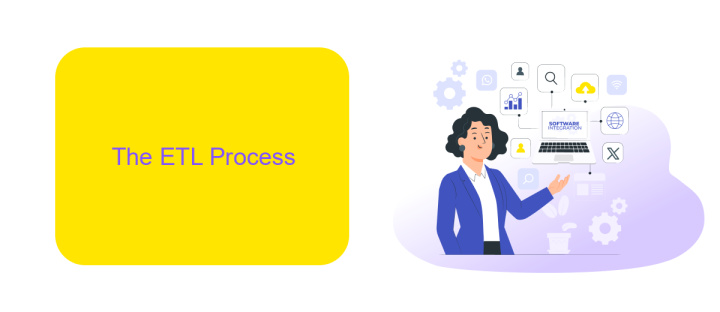What is ETL in Data Analysis
ETL, which stands for Extract, Transform, Load, is a crucial process in data analysis. It involves extracting data from various sources, transforming it into a suitable format, and loading it into a data warehouse or database. This process ensures that data is clean, consistent, and ready for analysis, enabling businesses to make informed decisions based on accurate information.
Introduction to ETL
ETL, which stands for Extract, Transform, Load, is a fundamental process in data analysis. It involves extracting data from various sources, transforming it into a suitable format, and then loading it into a destination system, such as a data warehouse or database. This process ensures that data is consolidated, cleansed, and ready for analysis, enabling organizations to make informed decisions based on accurate and timely information.
- Extract: Data is gathered from multiple sources, including databases, APIs, and flat files.
- Transform: The extracted data is cleaned, formatted, and transformed to meet the requirements of the target system.
- Load: The transformed data is then loaded into the target system for analysis and reporting.
Modern ETL tools and services, such as ApiX-Drive, streamline this process by automating data integration and transformation tasks. ApiX-Drive allows users to connect various data sources and automate workflows without writing code, making ETL accessible to a broader audience. By leveraging such tools, organizations can enhance their data management capabilities and focus on deriving insights from their data.
The ETL Process

The ETL process, which stands for Extract, Transform, Load, is a crucial component in data analysis. It begins with the extraction phase, where data is gathered from various sources such as databases, APIs, and flat files. This raw data is often unstructured and requires significant preprocessing. The extraction phase ensures that all necessary data is collected and ready for transformation, setting the stage for accurate and effective analysis.
In the transformation phase, the extracted data is cleaned, normalized, and formatted to meet the specific requirements of the target system. This step may involve filtering out irrelevant data, converting data types, and aggregating information. Tools like ApiX-Drive can facilitate this process by automating data integration and transformation tasks, ensuring seamless data flow between systems. Finally, in the loading phase, the transformed data is loaded into a data warehouse or another target system where it can be accessed for analysis and reporting. This structured approach ensures that data is reliable, consistent, and ready for insightful analysis.
Benefits of ETL

ETL (Extract, Transform, Load) is a crucial process in data analysis, enabling organizations to efficiently manage and utilize their data. By extracting data from various sources, transforming it into a suitable format, and loading it into a target system, ETL ensures data consistency and reliability.
- Improved Data Quality: ETL processes clean and standardize data, reducing errors and inconsistencies.
- Enhanced Decision-Making: With accurate and timely data, businesses can make informed decisions and gain valuable insights.
- Scalability: ETL systems can handle large volumes of data, making them suitable for growing organizations.
- Integration with Various Sources: Tools like ApiX-Drive facilitate seamless integration with multiple data sources, simplifying the ETL process.
- Automation: ETL workflows can be automated, saving time and reducing manual intervention.
Incorporating ETL into data analysis strategies allows businesses to harness the full potential of their data. With services like ApiX-Drive, organizations can streamline data integration, ensuring that their ETL processes are both efficient and effective. This not only enhances operational efficiency but also provides a competitive edge in data-driven decision-making.
Challenges of ETL

ETL (Extract, Transform, Load) processes are essential for data analysis, but they come with several challenges. One of the primary issues is data quality. Ensuring that the extracted data is accurate, consistent, and complete can be difficult, especially when dealing with multiple data sources.
Another significant challenge is the complexity of data transformation. Transforming data into a consistent format suitable for analysis often requires complex coding and significant computational resources. This can be time-consuming and prone to errors.
- Data Quality: Ensuring accuracy and consistency.
- Complex Transformations: Requires advanced coding skills.
- Scalability: Handling large volumes of data efficiently.
- Integration: Connecting diverse data sources.
Integration challenges can be mitigated using tools like ApiX-Drive, which simplifies the process of connecting various data sources and automating data workflows. By leveraging such tools, organizations can streamline their ETL processes, reduce manual effort, and improve overall data quality and reliability.
- Automate the work of an online store or landing
- Empower through integration
- Don't spend money on programmers and integrators
- Save time by automating routine tasks
Future of ETL
The future of ETL in data analysis is set to be revolutionized by advancements in automation and machine learning. Traditional ETL processes, which often require significant manual intervention, are evolving to become more efficient and less labor-intensive. Tools that leverage artificial intelligence can now predict and correct data inconsistencies, streamline data transformation processes, and optimize data loading times. This shift not only reduces the time and cost associated with ETL but also enhances the accuracy and reliability of data analytics.
Moreover, the integration landscape is becoming increasingly sophisticated with the rise of platforms like ApiX-Drive. These services enable seamless connections between various data sources and destinations, simplifying the ETL process for businesses of all sizes. By automating data integration, ApiX-Drive allows organizations to focus more on data analysis and strategic decision-making rather than the complexities of data management. As these technologies continue to evolve, we can expect ETL processes to become even more streamlined, accessible, and integral to data-driven decision-making.
FAQ
What is ETL in Data Analysis?
Why is ETL important?
What are the main steps involved in the ETL process?
How can ETL processes be automated?
What is ApiX-Drive, and how does it relate to ETL?
Do you want to achieve your goals in business, career and life faster and better? Do it with ApiX-Drive – a tool that will remove a significant part of the routine from workflows and free up additional time to achieve your goals. Test the capabilities of Apix-Drive for free – see for yourself the effectiveness of the tool.


